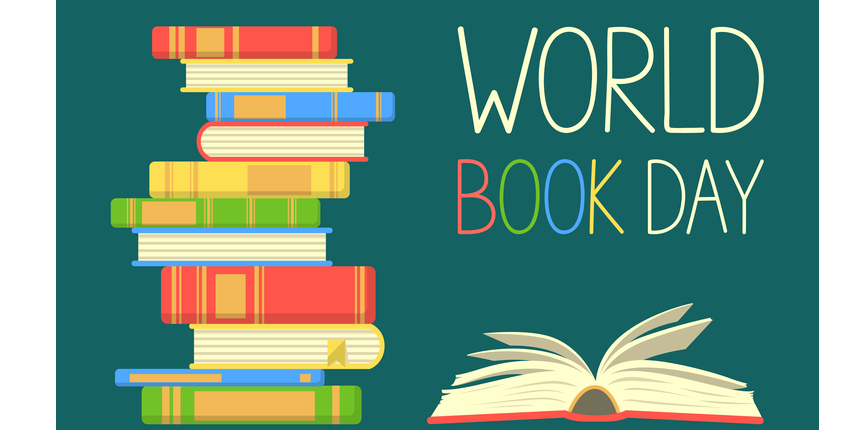“The quality, quantity and diversity of books produced by a society are important indicators of that society’s level of development. . . .”
-Valdehusa (1985).
April 23 of every year is marked around the world as ‘World Book and Copyright Day.’ Also known as ‘International Day of the Book,’ it is a Day set aside by the United Nations Educational, Scientific and Cultural Organization (UNESCO), to promote reading, publishing and copyright. The Day aims to change lives through a love of books and shared reading.
The theme for the 2024 ‘World Book Day’ is: “READ YOUR WAY.” This year’s theme calls on everyone to let go of pressure and expectations, giving children a choice – and a chance to enjoy reading.
According to Audrey Azoulay, Director-General of UNESCO: “Books have the unique ability to entertain and to teach. They are at once a means of exploring realms beyond our personal experience through exposure to different authors, universes and cultures, and a means of accessing the deepest recesses of our inner selves.” Therefore, the power of books should be leveraged to combat isolation, reinforce ties between people, and expand our horizons, while stimulating our minds and creativity. It is critical to take the time to read on our own, or with our children.
- Our culture key to preserving our identity – Abdulkarim Mohammed
- UNICEF, Nigerian media leaders partner to boost children’s rights advocacy
Did you know that The Bible stands out as one of the most widely translated and distributed books worldwide? The Bible is available (in whole or in part) in over 3,300 languages, and the estimated number of copies of the Bible produced is 5 billion, far more than any other book in history.
Which other book(s) do you enjoy or have you enjoyed reading? As for me, one book I am currently enjoying reading is a 400 – 500 page health care handbook titled: “WHERE THERE IS NO DOCTOR,” authored by David Werner. It is a very valuable health care handbook that I have found to be very-very beneficial! In fact, this health care handbook has been fondly described by some as “the ‘Bible’ of health education,” and I strongly recommend that every family should have a copy of this book at home.
Do you know about the book industry? There are three major sectors of the book industry. They are: publishers, booksellers and libraries. Book publishing is channeled towards promoting learning and expanding knowledge. In a strict sense, book publishing starts from the point of conceptualisation of the ideas for the book by the author, and ends at the very last stage – the end-user (the reader).
The history of book publishing in Nigeria can be traced to the establishment of the very first publishing press in Calabar, in 1846, by Rev. Hope Waddel of the Presbyterian Church of Scotland Mission. The press was used to print Bible lessons and later arithmetic books for schools. In 1854, another Missionary based in Abeokuta, Rev. Henry Townsend of the Church Missionary Society (CMS), established a Press. Five years later (1859), he used it to print the very first newspaper in Nigeria – ‘Iwe Irohin.’ Thereafter, notable Nigerians like Herbert Macaulay established the first indigenous newspaper in 1926, called Lagos Daily News. Also, in the same year, Daily Times made its debut.
However, in the last few decades, the Nigerian indigenous book publishing industry has experienced a downturn due to numerous challenges facing the industry, including: book piracy, proliferation of unqualified author-publishers, lack of capital, and inability to provide adequate numbers of high-quality books. Other challenges include: poor reading culture, infrastructural decay, dearth of expertise, incessant rancour among the major stakeholders, and so forth.
Therefore, here are some suggestions for developing our book publishing industry in Nigeria:
- Stakeholders such as government, publishers, authors, regulators, booksellers, libraries, and readers should cooperate among themselves and contribute their quota immensely towards the development of a virile book publishing industry.
- Private investors such as banks, finance houses and influential individuals should participate, especially in terms of massive capital injection.
- The government can partner with notable non-governmental organisations in the establishment of book clubs in our schools across the nation. This will help to promote a good reading culture among the youths.
- Government should help to eliminate the scourge of book piracy.
- Government should charge less import duties on book publishing equipment and accessories in order to encourage hitch-free importation.
- Book publishing firms should make it a policy to give their technical staff up-to-date professional training, to ensure efficiency.
- Existing public libraries should be renovated and upgraded, while new ones should be built and equipped with relevant titles.
The onus is therefore on all, both the government and the private sector, to nourish our book publishing industry – the harbingers of books, thereby contributing towards the further development of the society.
Daniel Ighakpe wrote from FESTAC Town, Lagos

 Join Daily Trust WhatsApp Community For Quick Access To News and Happenings Around You.
Join Daily Trust WhatsApp Community For Quick Access To News and Happenings Around You.

